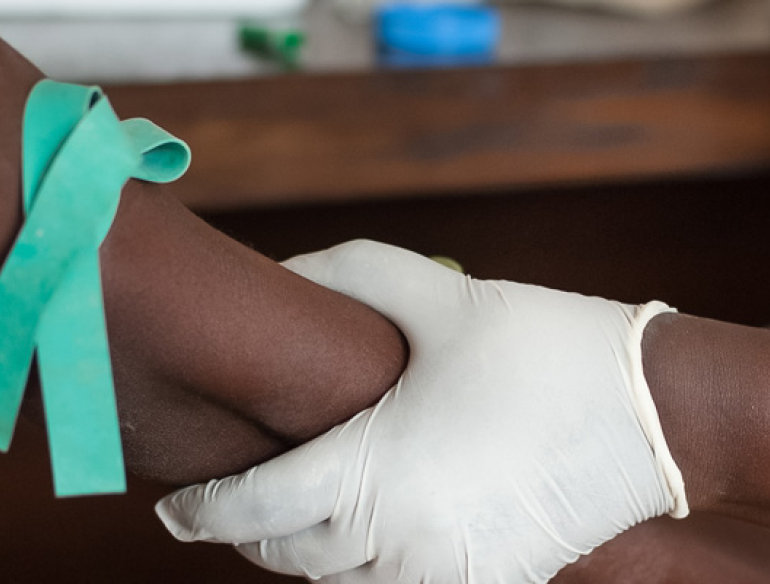Papua New Guinea (PNG) has the highest burden of HIV in the Pacific region. Researchers in the country have in recent years honed efforts to better understand the epidemic in order to develop and implement appropriate education, testing and treatment initiatives for their communities. But a rise in drug resistance in the region has proven particularly problematic for those currently on or about to commence HIV treatment.
Recent PNG data has shown high rates of HIV drug resistance and has highlighted the need for ongoing routine viral load testing, which tests for the amount of virus present in the body, as well as expanded surveillance to include children and pregnant women with HIV. In an effort to help address this gap, the Indo-Pacific Centre for Health Security within the Australian Department of Foreign Affairs and Trade has awarded $3.76 million to a project that will bolster HIV viral load testing at the point of care, and surveillance capacity relating to HIV drug resistance in PNG.
The project will be led by the Kirby Institute at UNSW Sydney and the PNG Institute of Medical Research.
“Although most attention relating to antimicrobial resistance is focused on bacterial infections like tuberculosis, drug-resistant strains of HIV are emerging and are of significant concern,” says Associate Professor Angela Kelly-Hanku, who is leading the project. “This means it is getting increasingly difficult to ensure that people living with HIV are virally suppressed, which is what the drugs work to achieve. This poses a risk not only to people living with HIV, but to the wider community.”
The project will implement a number of strategies that are aimed at strengthening the laboratory and public health workforce capacity and HIV viral load testing to improve monitoring and surveillance of HIV drug resistance in PNG.
“It is critical that we monitor the transmission of HIV, and the prevalence of drug resistant strains of HIV, particularly in a country experiencing dual epidemics of HIV and HIV drug resistance,” says Dr Steven Badman, co-principle investigator on the project. “The PNG IMR are delivering important research and intervention programs that are addressing pressing health issues in PNG, despite infrastructure being extremely stretched. This significant partnership will support the local workforce in building their capacity to do HIV drug resistance testing in PNG and deliver surveillance that meets the needs of both the PNG Government and the community.”
Together, the team believes this project will not only enhance the workforce capacity through surveillance training and development, but that it will establish two key HIV point of care testing and treatment sites, at Port Moresby and Mount Hagen, as regional centres of HIV excellence.
“There have been significant inroads made in PNG to better understand the HIV epidemic, however, the country is struggling to deliver the testing and treatment programs required to ‘End AIDS by 2030’ and in doing so meet the UNAIDS 90-90-90 targets,“ says A/Prof Kelly-Hanku. “As new threats emerge it is critical that systems are in place to respond both quickly and into the long term. We commend the Australian Government for their support and health investment in our region.”
